Why does my cat hate me?
We’ve all encountered moments when our beloved feline companions seemingly recoil at our very presence. But before jumping to conclusions, it’s essential to understand that cats experience the world differently from humans.
In this blog post, we’ll delve into the reasons behind cats’ negative behavior, dispel the notion of “hate,” and provide insights into fostering a healthier bond with your feline friend.
Why does my cat hate me?
Why does my cat hate me? Your cat hates you because you don’t respect its boundaries and don’t give it proper space.
There are also other reasons that we will discuss in detail below.
Read Also: How much hair does a cat shed in a day?
Are Cats Capable of Hate? Understanding Feline Emotions
It’s important to acknowledge that cats do not experience emotions in the same way humans do. While they can feel fear, happiness, and contentment, attributing human-like hate to cats is misleading. Their behavior is influenced by a combination of instincts, learned behaviors, and environmental factors.
Now let’s discuss the signs that your cat hates you or not. Let’s start!
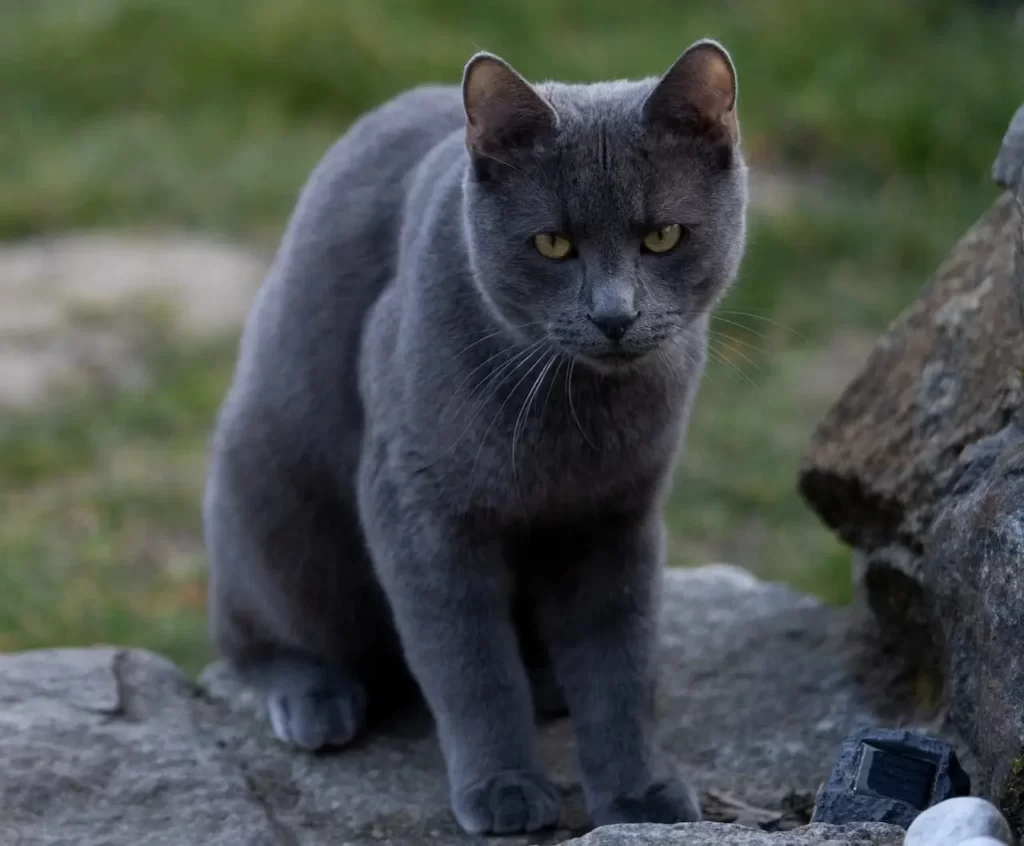
7 Creepy Signs Your Cat Hates You
While cats can exhibit a range of behaviors, it’s important to remember that they have their own unique personalities and may express their emotions differently from humans. However, here are seven potential signs that could indicate your cat is unhappy or uncomfortable around you:
1. Avoidance
If your cat actively avoids spending time with you and consistently seeks out hiding places or secluded areas of the house when you’re around, it could be a sign of dislike or fear.
2. Hissing or growling
If your cat hisses or growls at you frequently, it may be a clear indication that they feel threatened or defensive in your presence.
3. Aggressive behavior
Cats that scratch, bite, or attack their owners often have underlying issues that should be addressed. Aggression can be a sign of fear, pain, or frustration.
4. Tail flicking or lashing
A cat’s tail can communicate its mood. If your cat’s tail is constantly flicking or lashing while you’re around, it may be a sign of irritation or annoyance.
5. Ears pinned back
When a cat’s ears are flattened or pinned back against its head, it generally indicates fear, anxiety, or aggression. This body language could suggest that your cat is not comfortable being around you.
6. Excessive grooming or self-soothing behaviors
Cats may engage in excessive grooming, scratching, or licking when they are stressed or anxious. If your cat constantly engages in these behaviors when you’re present, it might be a sign that they’re unhappy in your presence.
7. Lack of eye contact
Eye contact is a way for cats to communicate and build trust. If your cat consistently avoids making eye contact with you or appears tense and wide-eyed, it could be a sign that they are uncomfortable or feel threatened.
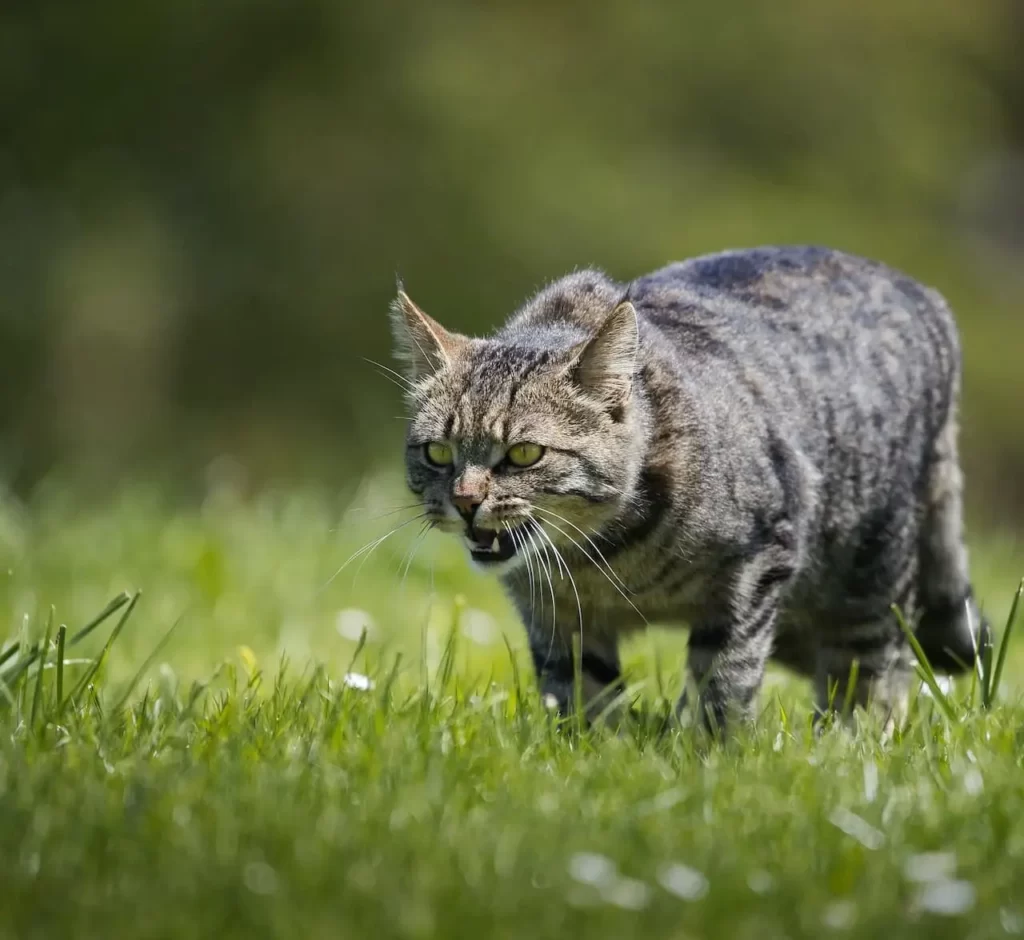
Reasons: Why Your Cat Hates You
Fear and Anxiety: The Feline Fear Factors
Cats can be sensitive creatures, and fear and anxiety can lead to negative behavior. Noise, sudden changes in the home environment, past traumatic experiences, and insecure attachments can all contribute to their fearful reactions.
Understanding these triggers can help us provide a more secure and calming environment for our feline companions.
Lack of Socialization: The Early Socialization Imperative
Early socialization is crucial for cats to develop positive associations with humans. When cats are not properly socialized during their critical period, which is usually between 2 and 7 weeks of age, they may struggle with forming strong bonds.
This lack of socialization can manifest as distant or unfriendly behavior towards their owners. However, with patience and positive reinforcement, these cats can be rehabilitated and learn to trust humans.
The Lingering Effects of Past Experiences
Negative past experiences can shape a cat’s behavior towards specific individuals or situations. These experiences can lead to defensive or avoidant behaviors.
Rebuilding trust with a cat that has had negative encounters requires patience, understanding, and consistent positive experiences.
Read Also: Why Does My Cat Slap Me?
Underlying Health Issues: When Behavior Speaks Volumes
Sometimes, changes in a cat’s behavior can be an indication of underlying medical issues. Cats may exhibit negative behavior as a way to communicate their discomfort or pain.
If you notice significant behavior changes, it’s important to consult a veterinarian to rule out any potential health problems.
Read Also: Can cats eat sausage?
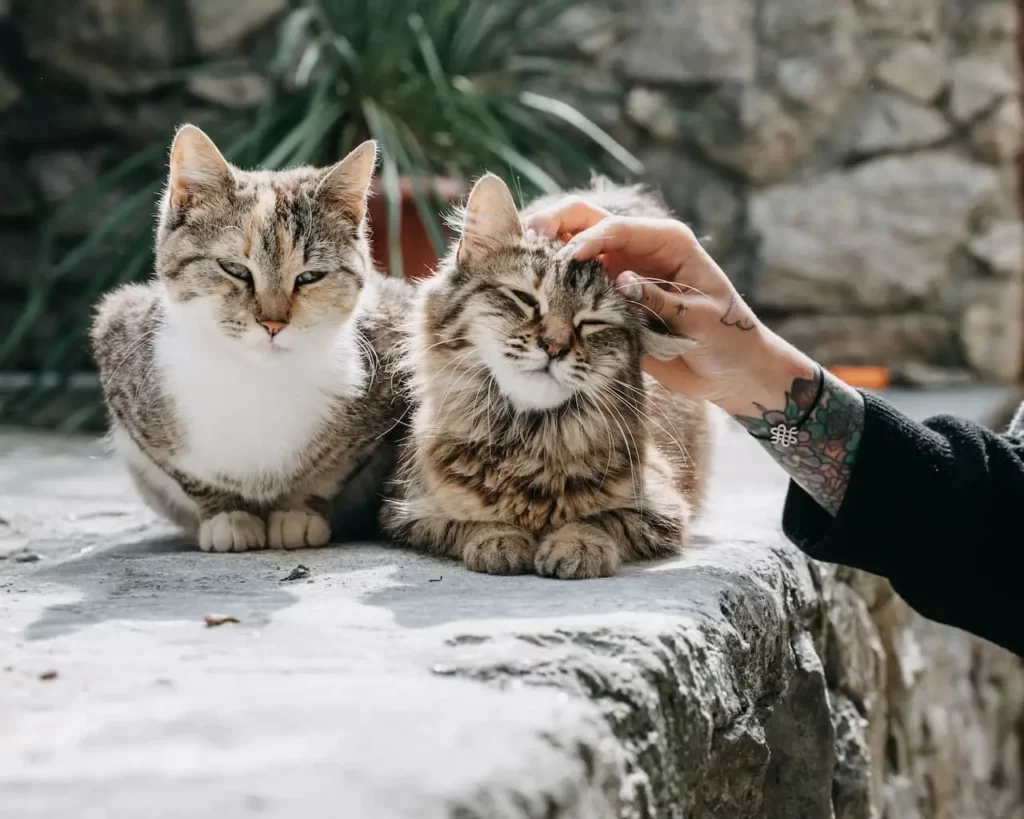
How do you stop a cat from hating you?
1. Understand Feline Behavior
Cats communicate differently than humans, and their body language often conveys their feelings. Educate yourself on cat behavior by observing their signals.
For example, a cat’s flattened ears, twitching tail, or dilated pupils might indicate stress or discomfort. Recognizing these signs will help you understand their emotions and adjust your approach accordingly.
2. Give Them Space
If a cat seems to dislike you, it’s crucial to respect their boundaries. Cats need their personal space, especially when they’re feeling overwhelmed or anxious.
Avoid forcing interaction and allow them to come to you on their terms. Provide a designated safe area in your home where the cat can retreat to when they need solitude.
3. Slow and Gentle Approach
When attempting to build a bond with a cat who dislikes you, take a slow and patient approach. Begin by sitting quietly near the cat without making direct eye contact.
Allow the cat to get accustomed to your presence. Over time, offer treats or toys to create positive associations and gradually initiate gentle interactions, such as softly petting their chin or stroking their back.
Read Also: How Long Can a Cat Go Without Urinating?
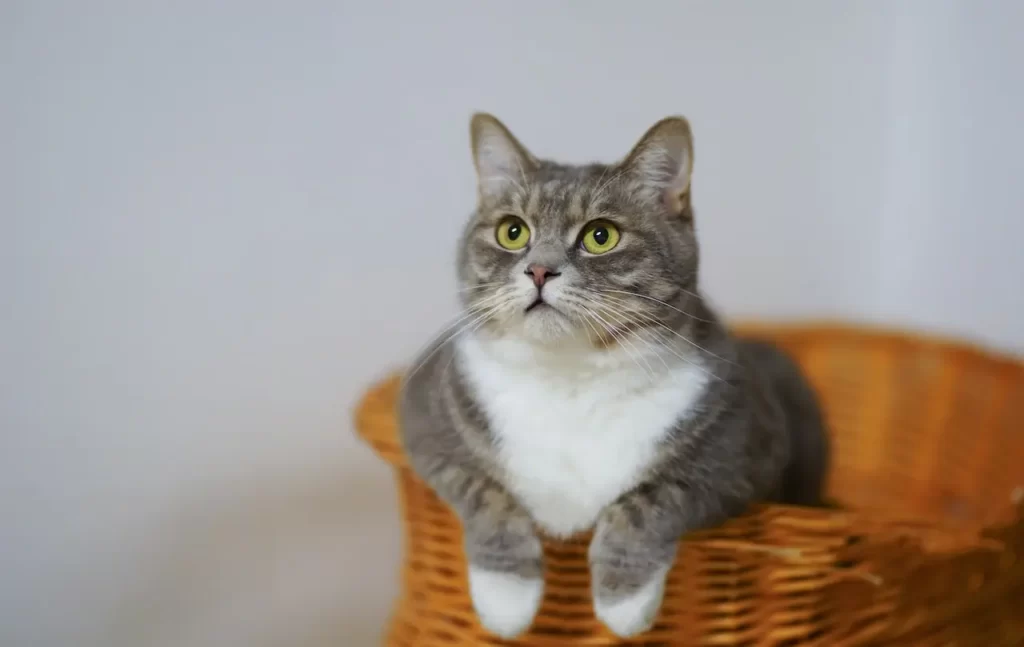
4. Use Positive Reinforcement
Positive reinforcement is a powerful tool when it comes to winning over a cat. Reward desirable behavior with treats, praise, or playtime.
By associating your presence with positive experiences, the cat will start to form a more positive opinion of you. Remember to be consistent and patient, as it may take time for them to change their perception.
5. Play and Engage
Engaging in interactive play with a cat can do wonders for your relationship. Cats are natural predators, and playtime satisfies their instinctual need for stimulation.
Use interactive toys, such as feather wands or laser pointers, to engage the cat in a fun and exciting way. Regular play sessions will not only strengthen the bond but also help redirect any negative energy.
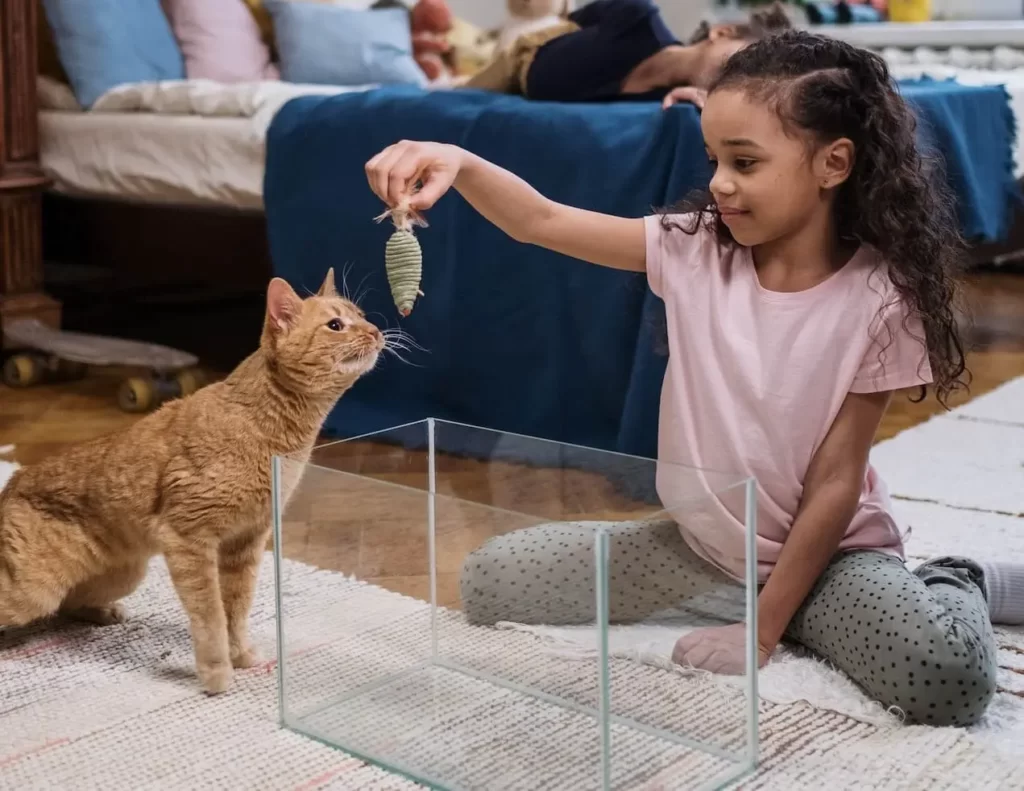
Respect Their Preferences
Just like humans, cats have individual preferences. Pay attention to their likes and dislikes. Some cats enjoy being brushed, while others prefer chasing toys.
Respect their choices and cater to their preferences to create a more positive and comfortable environment for them.
Provide a Nurturing Environment
Creating a nurturing environment is vital in changing a cat’s perception of you. Ensure their basic needs are met, including a clean litter box, fresh water, and a balanced diet.
Create cozy spots for them to relax, such as comfortable beds or perches near windows. Additionally, consider using pheromone diffusers or calming aids to reduce stress and anxiety.
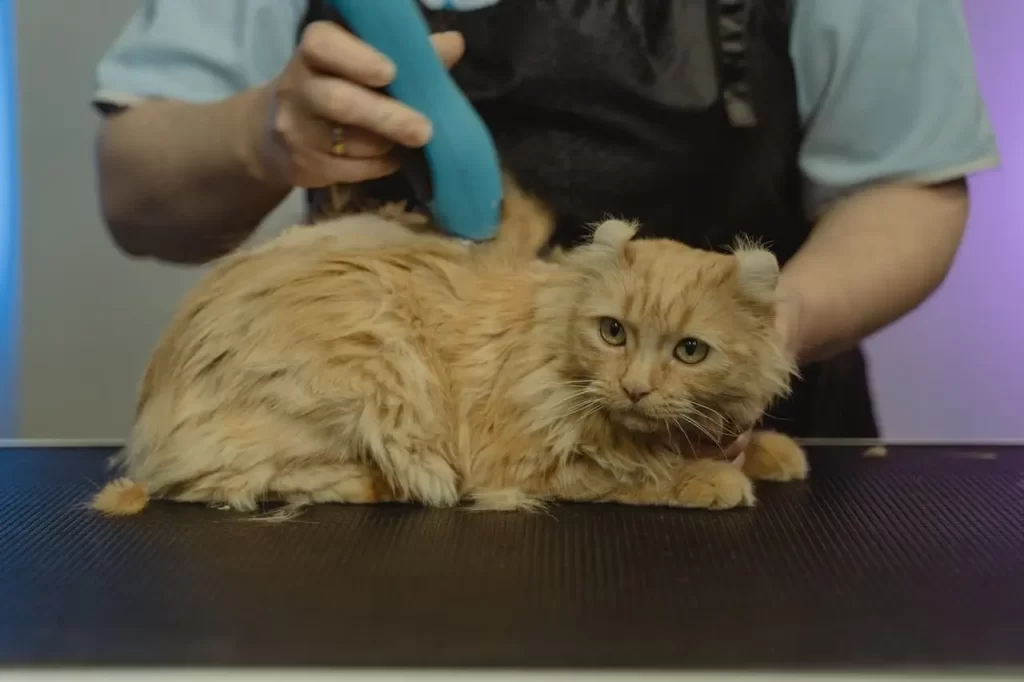
Seek Professional Help if Needed
In some cases, a cat’s dislike may stem from underlying health issues or traumatic experiences. If you’ve tried various methods without success, it may be beneficial to consult a veterinarian or a professional animal behaviorist. They can provide guidance tailored to your cat’s specific needs.
Frequently Asked Questions
How to bond with a cat that hates you?
To bond with a cat that initially dislikes you, it’s important to respect their space and allow them to approach you on their own terms. Use positive reinforcement, such as treats and praise, when they show positive behavior or interest in interacting with you.
Establish a consistent routine, engage in play sessions, and gradually introduce gentle petting. Be patient, consistent, and understanding, allowing the bond to develop at the cat’s pace. If needed, seek professional guidance from a veterinarian or animal behaviorist.
Does my cat hate me if she hisses at me?
No, your cat does not necessarily hate you if she hisses at you. Hissing is a defensive behavior that cats use to communicate fear, discomfort, or a desire for space.
It’s a way for them to establish boundaries and express their unease in a situation. It could be due to various reasons such as feeling threatened, being in pain, or experiencing stress.
It’s important to respect your cat’s signals and give her the space she needs. Gradually work on building trust and a positive relationship with her through patience, understanding, and positive reinforcement techniques.
How do I apologize to my cat?
To apologize to your cat, approach them calmly and create a peaceful environment. Speak softly and offer treats or favorite toys as a peace offering. If your cat needs space, respect their boundaries and give them time.
Engage in positive activities like playtime or gentle petting to rebuild trust. Be patient, consistent, and attentive to their needs. Remember that each cat is unique, and it’s important to observe their behavior and consult professionals if needed.
Do cats forgive easily?
Cats have individual personalities, and their ability to forgive can vary. While some cats may forgive and forget relatively quickly, others may take longer to rebuild trust after a negative experience.
Cats are known for their independence, and they may not display forgiveness in the same way humans do. However, with patience, consistent positive interactions, and providing a secure and comfortable environment, many cats can gradually regain trust and form a bond again.
It’s important to respect their boundaries and give them the space they need to feel safe and comfortable. If you’re concerned about your cat’s behavior or the state of your relationship, consulting with a veterinarian or an animal behaviorist can provide further insight and guidance.
How can I impress a cat?
You can impress a cat by giving him toys, food, and treats.
Conclusion
Understanding our feline companions’ behavior is a vital step toward building a harmonious bond. Cats do not experience emotions such as hate in the same way humans do, and their negative behavior often arises from fear, anxiety, past experiences, or underlying health issues.
By creating a safe and enriching environment, practicing patience and positive reinforcement, and seeking professional advice when necessary, we can foster a stronger and more positive relationship with our feline friends. Remember, a little understanding and empathy can go a long way in deciphering the enigmatic world of cats.

